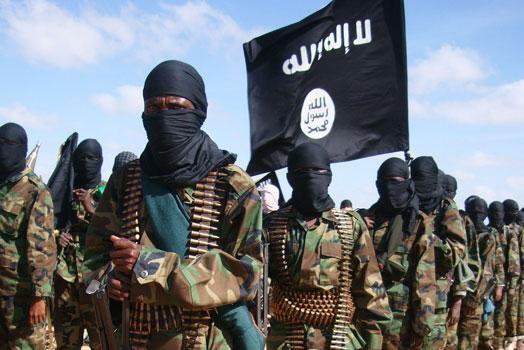Eco-Jihad: Are Islamic extremists really embracing saving the planet?
Banning plastic bags and planting trees don’t seem to add up with terror groups' other activities – but there’s more than one reason jihadis might be embracing going green

Somalia’s al Shabaab made headlines last week with an announcement the terrorist organisation has banned single-use plastic bags in areas of the country under its control.
The eco-friendly move seemed incongruous with some of their other policies – namely, indiscriminate gun and bomb attacks on civilians in Somalia and neighbouring Kenya – not to mention profiteering from planet-destroying charcoal and the illegal ivory trade.
Citing religious justification, the extremists have banned smoking, dancing, playing football and watching movies in the past.
But there may be more to the al Qaeda-linked group’s latest policy announcement than meets the eye.
“Terrorist groups are always trying to attract attention, which they want to convert into legitimacy and impact,” said Dr Bruce Hoffman, a visiting senior fellow at the Washington DC-based Council on Foreign Relations.
“Al Shabaab are not the most sophisticated terror movement out there, they’re not international. But they are serious about a show of governance and over the years they have been adept at understanding themes that resonate with Western audiences. This is a particularly good example of that.”
Local and international jihad is increasingly interlinked thanks to technology and social media: Isis instilled fear and attracted recruits from all over the world largely thanks to its ability to harness unlimited audiences via the internet.
Al Shabaab’s plastic bag policy is designed to create the impression of a functioning local governing force and appeal to potential members from Somali slums and Kenyan refugee camps, which are blighted with plastic and other litter – but al Qaeda as a whole has been vocal on environmental issues in the past.
The Quran goes into much more detail about protecting the environment than the other monotheistic religions.
Files recovered by the CIA from Osama bin Laden’s compound in Abbottabad showed the terrorist leader was preoccupied with the effects of climate change, which has caused severe flooding in Pakistan in recent years.
The documents revealed he blamed the West for plundering the earth’s resources and thought Muslims needed to prepare for the effects of global warming through a Shariah-appropriate climate change development organisation outside “insufficient traditional relief efforts”.
Several al Qaeda leaders have also stressed worries about water scarcity in the Arabian Peninsula, which is currently contributing to the misery of Yemen’s civil war.
Path of Blood: a documentary shot by Al Qaeda
Show all 7"Al Qaeda positions its concern for the environment as part of its broader concern for Muslim welfare,” said Dr Elisabeth Kendall of Oxford University.
“[Their] concern does appear to spring from a genuine wish to safeguard Muslims from the consequences of damaging short-term policies of corrupt secular rulers (as it sees them),” she said.
“But it is more about a desire to display paternalistic credentials … After all, al Qaeda’s target market tends to be up for a quick route to paradise and thus not overly concerned about the effects of global warming.”
There is a dual purpose in most of al Qaeda’s environmental ideas: a call from the Magreb branch for good Muslims to plant trees was more about making it harder for drones to spot militants than combating deforestation.
The Taliban have issued similar edicts for Afghans to plant trees, which play an “important role in environmental protection, economic development and the beautification of earth“ as well as honouring Allah.
Nonetheless, al Shabaab’s new plastic bag policy shows how terrorism is “perennially changing with the times to form new audiences and relationships,” said Dr Hoffman.
“This move came from a very local group. It was probably opportunistic, but the chatter about it online shows it’s transformed from a local issue into a global one,” he said.
“If al Shabaab start focussing on the destruction of the environment, imagine what that idea could look like if it was harnessed by an international, more powerful group.”
Subscribe to Independent Premium to bookmark this article
Want to bookmark your favourite articles and stories to read or reference later? Start your Independent Premium subscription today.

Join our commenting forum
Join thought-provoking conversations, follow other Independent readers and see their replies